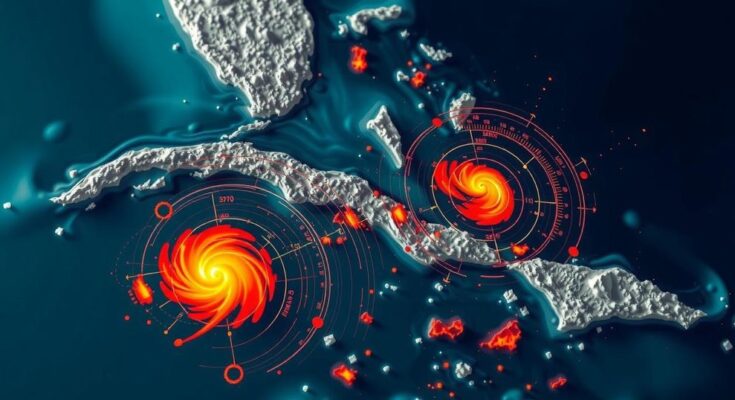A significant earthquake hit eastern Cuba with a magnitude of 6.8, further stressing a nation already reeling from recent hurricanes and persistent blackouts. The quake’s epicenter was near Bartolomé Masó, causing residents to flee to the streets in fear. Fortunately, there are no immediate reports of damage or injuries, but the earthquake exacerbates an already challenging situation for many Cubans.
On Sunday, eastern Cuba experienced a 6.8 magnitude earthquake, the tremors of which were felt across the region, including major cities such as Santiago de Cuba. The United States Geological Survey identified the earthquake’s epicenter as being around 25 miles south of Bartolomé Masó. Fortunately, there have been no immediate reports of damage or injuries. However, local residents expressed their fear and anxiety, with many rushing into the streets in response to the quake. Yolanda Tabío, a 76-year-old resident, noted that some individuals were still seated at their doorways, apprehensive after experiencing multiple aftershocks, although she had not encountered any reports of significant damage. This earthquake has struck a vulnerable Cuba that has been grappling with the aftermath of hurricanes and energy crises. Just days prior to the earthquake, Hurricane Rafael, a Category 3 storm, wreaked havoc in western Cuba, leading to widespread power outages and devastating property damage. Thousands of people were forced to evacuate their homes, and many areas are still experiencing blackouts, which have persisted for weeks due to the ongoing energy crisis. In October, Cuba faced simultaneous challenges, including extensive blackouts and a hurricane that notably affected the eastern region, resulting in fatalities. The cumulative impact of these disasters has heightened frustration and unrest, sparking small protests across the nation.
Cuba is currently enduring a difficult period marked by a series of natural disasters, including hurricanes and earthquakes, compounded by ongoing electrical blackouts. Recently, Hurricane Rafael disrupted life across the island, leading to widespread power outages. Preceding this, an energy crisis had caused island-wide blackouts, leaving many residents unable to access basic services. The confluence of these events has created a state of discontent among the population, contributing to rising tensions and civil disturbances.
In conclusion, the recent 6.8 magnitude earthquake in Cuba underscores the myriad challenges the nation faces as it grapples with the aftermath of extreme weather and prolonged electrical outages. The earthquake added to the anxiety already felt by residents following Hurricane Rafael and earlier energy crises. The cumulative stresses of these disasters highlight the urgent need for improved infrastructure and disaster preparedness to better support the Cuban population.
Original Source: www.cbsnews.com




